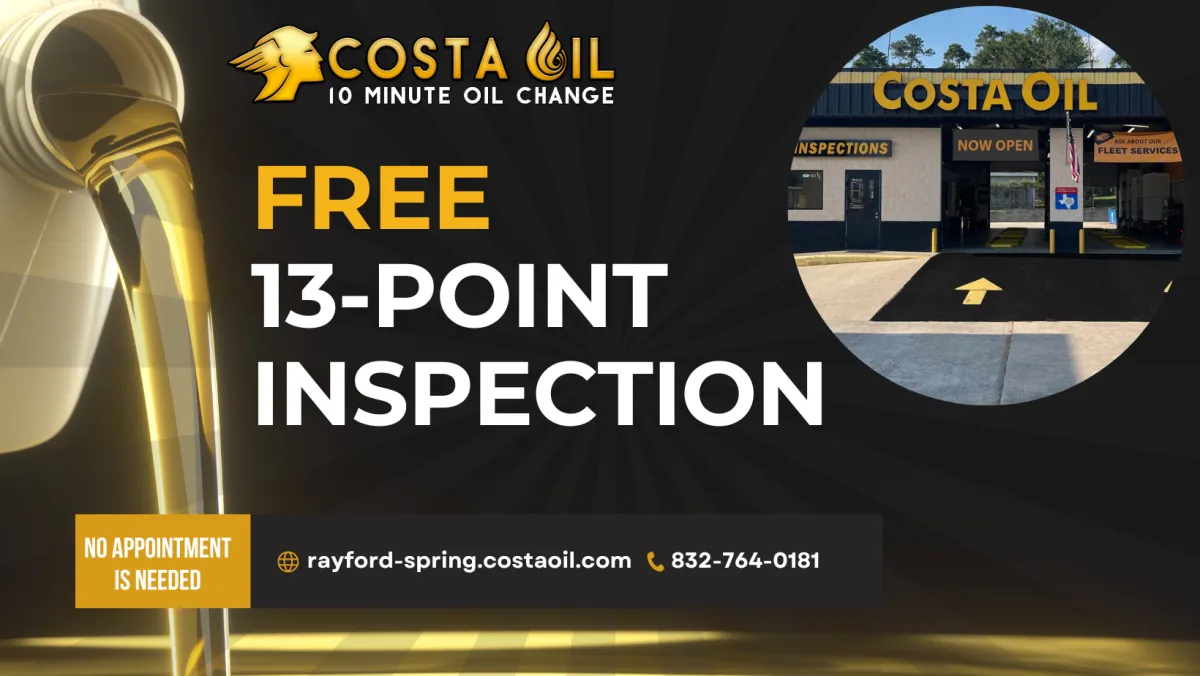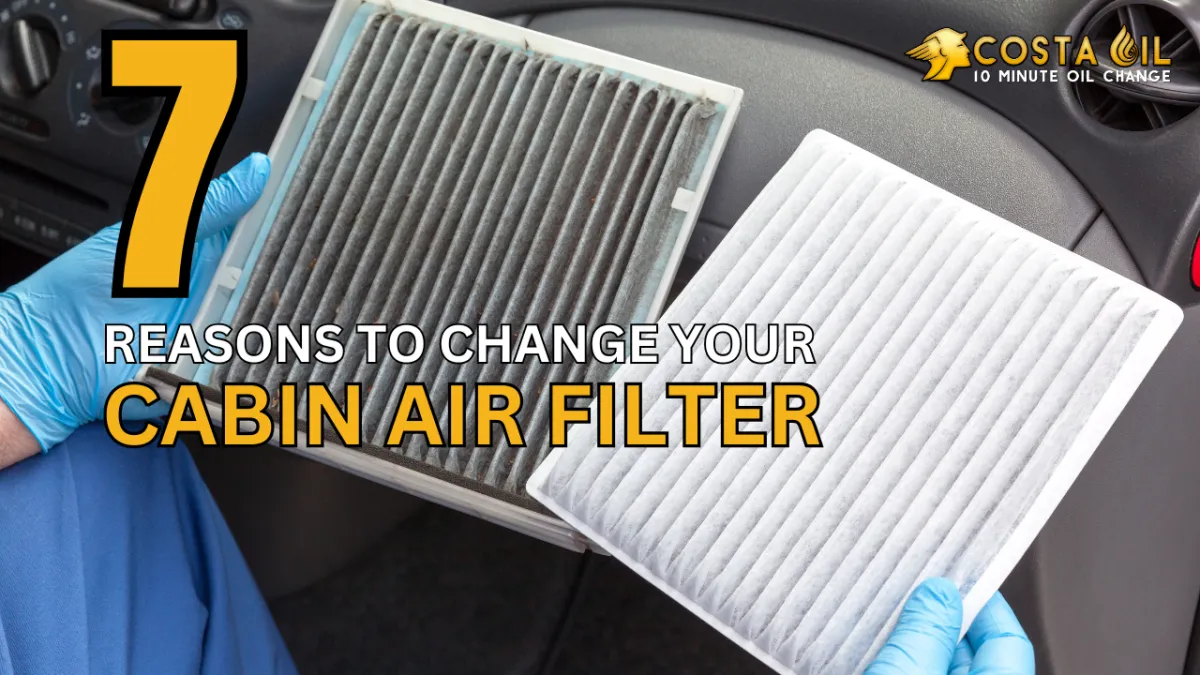Get Your Car Ready for Cold Weather: Fall & Winter Prep Tips from Costa Oil
Get Your Car Ready for Cold Weather: Fall & Winter Prep Tips from Costa Oil

Get Your Car Ready for Cold Weather: Fall & Winter Prep Tips from Costa Oil

Discover why regular vehicle maintenance, like checking your oil, coolant, and tire pressure is essential, and how Costa Oil – Rayford in Spring, TX makes it fast, easy, and honest. With a free 13-point inspection, drive-thru service, and 4.9-star customer rating, this locally owned shop is your go-to for dependable car care at 401-1/2 Rayford Rd, Spring, TX 77386

7 reasons for Changing the cabin air filter in your ride on a regular basis is very important for having crisp air and keeping your HVAC pumping efficiently. These are 7 reasons you gotta swap that sucker out: Cleaner Air, Less Allergies & Stank, HVAC Works Better, Gas Savings, Protects the System, Defogs Better and Staying on Top of It.

The Article explains to vehicle owners the main Difference Between Conventional, Synthetic Blend, and Full Synthetic Oil